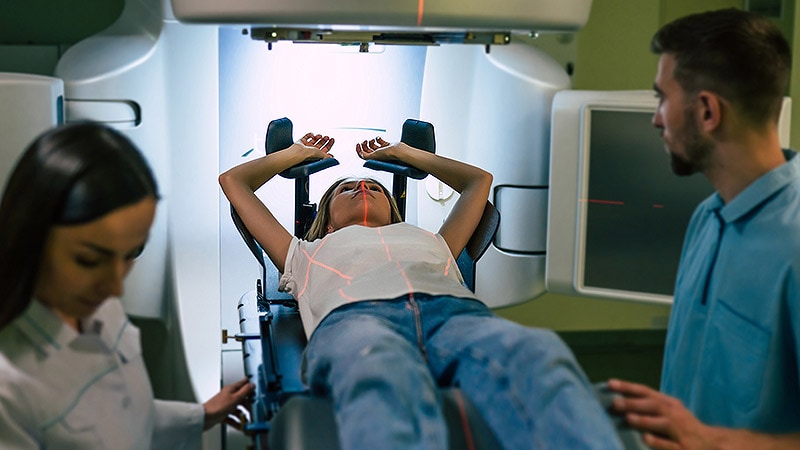The British Thoracic Society (BTS) has published new quality standards for the investigation and management of pulmonary nodules.
The standards are based on the BTS guideline for the investigation and management of pulmonary nodules published in 2015 which provides clear recommendations for chest physicians to ensure that patients with incidental pulmonary nodules follow a consistent process of investigation and, where appropriate, treatment. The new standards are intended to act as markers of high quality, cost-effective and evidence-based patient care in this clinical area.
They state that individuals with non-calcified nodules confirmed on CT should have their nodule(s) assessed for malignancy risk and those with solid pulmonary nodules should have their nodules assessed by semi-automated volumetry in preference to manual diameter measurements where possible and appropriate.
Positron emission tomography-CT carried out to assess solid pulmonary nodules should be reported using qualitative assessment with an ordinal scale to define fluorodeoxyglucose uptake as absent, faint, moderate or intense, in relation to background lung tissue and mediastinal blood pool, to facilitate the use of the Herder risk prediction model.
Patients with nodules considered for definitive treatment and suitable for surgical intervention should be offered lobectomy with pathological confirmation of malignancy by frozen section, if not previously confirmed, or anatomical segmentectomy if unfit for lobectomy. Where safe, ablative non-surgical treatment should be offered to those with nodules considered for definitive treatment but who decline or who are unsuitable for surgery.
To support health professionals in this area, the BTS has also developed an app which offers a risk calculator based on the current guidelines. The app, developed in conjunction with Cancer Research UK, is available on Apple and Android devices.


